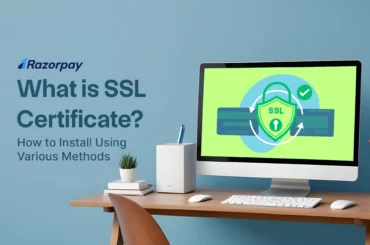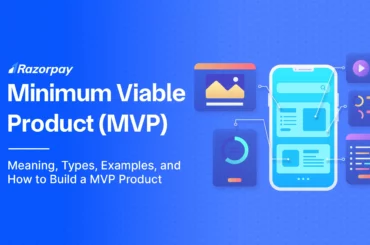When an entrepreneur initiates a project to seek, develop and validate a scalable business model to fruition, it becomes a start-up. They also refer to new businesses that intend to grow beyond the tag of a founder, have employees, and rise.
But amidst all the hype and hoopla of being the boss and running your own company, a start-up needs money to kickstart.
Know how to register a startup in India.
So what do you do? You pitch your idea to certain people who remain behind the screen– decision-makers and risk-takers, who validate your business model. They are Venture Capitalists (VCs).
Who are venture capitalists
Definition: Well-heeled investors often invest their capital in businesses with indelible growth opportunities. The infused capital is called venture capital, and the investors are known as VCs.
By nature, VCs sail with risky investments or new businesses, which is adequate to hand-out high returns if they figure out the right venture.
Or there’s also an amount of risk substantial enough to scare off banks!
To ensure the money is well spent, VCs have the authority to leverage crucial decisions of the companies they are investing in.
Understanding venture capitalists
VCs are usually composed as limited partnerships where partners invest in the VC fund. It constitutes of a committee that is responsible for making investment decisions.
Here’s an icebreaker: In contrary to popular opinion, VCs do not fund start-ups from the beginning. They often look for a strong management team and review the potential market, and unequalled products or services with a robust vying edge.
Most VCs also give preference to industries that they are familiar with. Click here to read more.
Also, like every great marketing and sales, the startup pitch ballgame starts before you dance– it’s inception is research.
But make it one memorable pitch, they said.
Well, memorable doesn’t always translate to profitable. Because, in reality, Venture Capitalists often hear plenty of pitches every week.
And, if you want to be on the front-page of their list, it is essential to learn a step-by-step strategy for pitching to VCs.
Let’s get started.
Go on a fishing expedition
Before you present, it is always essential to do some groundwork on the person that you are going to meet. Here are some tips:
- Decode their interests
- Enquire if the VC has any expertise in your area. And, improvise your pitch based on their background knowledge
- Find out their priorities–objectives, goals and roadmap
- Make sure that you are talking to the right people who’d invest in you. Understand the logistics and their fund size because if the firm is towards the end of their fund, they will be selective in handing out cheques
Don’t play by the rules
In the year 1976, Lynyrd Skynyrd was about to open for The Rolling Stones. Now the popularity of the Stones was way too much to handle for the lesser-known southern rock band.
As popularly said: “Opening for the Stones was like standing in front of a firing squad.”
Lynyrd Skynyrd was asked to complete their set within 45 minutes. Yeah, 15 songs altogether
So they shortened their setlist and interacted with the audience–maddening guitar solos, callbacks, sing-alongs, crowd jumping and the infamous tongue walk.
This incident is a Rock n Roll Memorabilia. So before you walk into the room, improvise.
Or ask them: What’s that one important thing you want me to cover?
Depending on their answer, you gain an extra set of eyes on their interest. This is where you set the timbre of the conversation, and the chance to give them the best, most authentic impression of yourself.
You got that, right?
Read more: 5 Steps to Pitch to a VC
Generally, VC firms aim to invest in high-risk projects with the anticipation of high returns, and the funds provided by them is called venture capital.
But providing monetary support to startups and new ventures come with a price. For higher growth opportunities, the possibilities are endless; at the same time, it’s risky business, too. Regardless of the difficulties, there are many Venture Capital (VC) firms that provide the necessary push to new ventures.
For example, Y Combinator, Sequoia, Tiger Global Management and Matrix Partners, to name a few.
What are Venture Capital funds?
According to the Securities and Exchange Board of India (SEBI), Venture Capital Funds (VCF) is a stock of money established in the form of a trust or company registered with SEBI.
The VCF will have a dedicated pool of capital, raised in a specified manner and invested by following regulations of SEBI.
A pool of money stocked together from different investors that a fund manager invests into selected startups is called VC funds.
An ideal VC organization manages about $100 to $200 million in venture capital every year for its investors. The fund gets divided between many startups, but in some cases, the money is pumped into a single company.
[Suggested reading: Startup Funding in India]
Who invests in Venture Capital funds?
Most of the capital that a VC firm invests comes from Limited Partner investors or LPs, who are high net worth individuals and institutional investors.
The nature of LP investors can vary widely, but the bulk of the capital in the VC ecosystem comes from large institutions or Institutional investors.
Institutional investors: Large institutions like endowment and pension funds, hospitals, charitable trusts, and corporations, who invest their capital to achieve a certain percentage of interest
Whereas, a modest portion of the overall capital in the VC ecosystem comes from high net worth individuals.
High net worth individuals: They are people with a net worth of over $2 million in liquid assets who invest their wealth.
Who manages Venture Capital funds?
VC firms employ competent managers who are responsible for running the funds invested by LPs (high net worth individuals or institutional investors).
The fund managers or general partners are responsible for investing the wealth in profitable startups, which guarantee a favourable ROI and maximize returns for the LPs.
Other responsibilities of the general partners:
- Raise funds from LPs
- Source innovative startups
- Invest funds in promising startups
- Deliver ROI to LPs
Also read: How Do Venture Capitalists Get Paid?
Conclusion
In VC funding, startups can raise money that they are under no obligation to repay. However, the cost of accepting the funds is higher–investors can buy a percentage of the company from the founders.
VC funding is the ultimate financing structure for the startups that need cash to run their engine and will spend more time in the red to build a profitable business.
“One of the cautionary lessons of VC is, if you don’t invest on the basis of serious flaws, you don’t invest in most of the big winners.” ?Marc Andreessen
Also read: India’s FinTech – An Unbalanced Adoption





